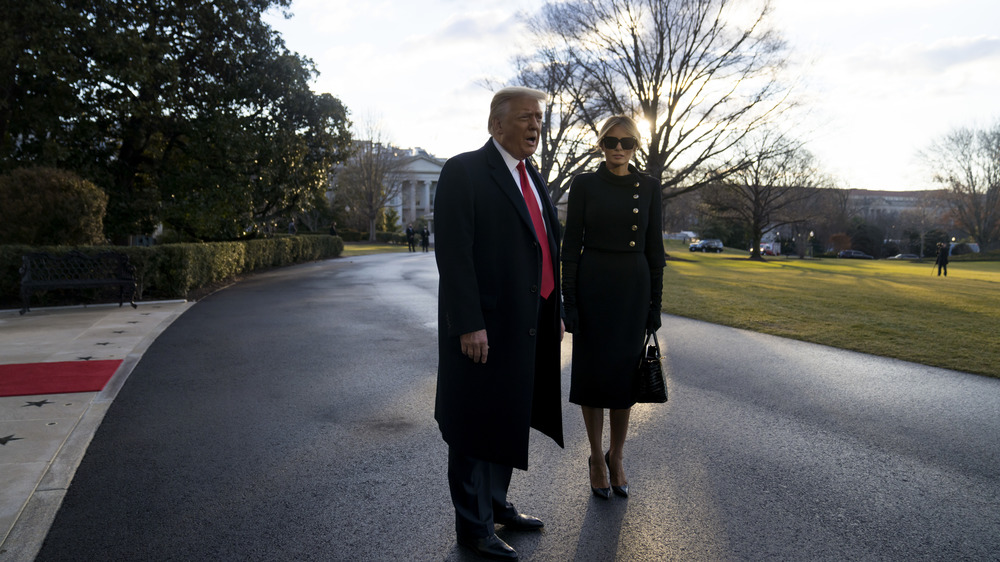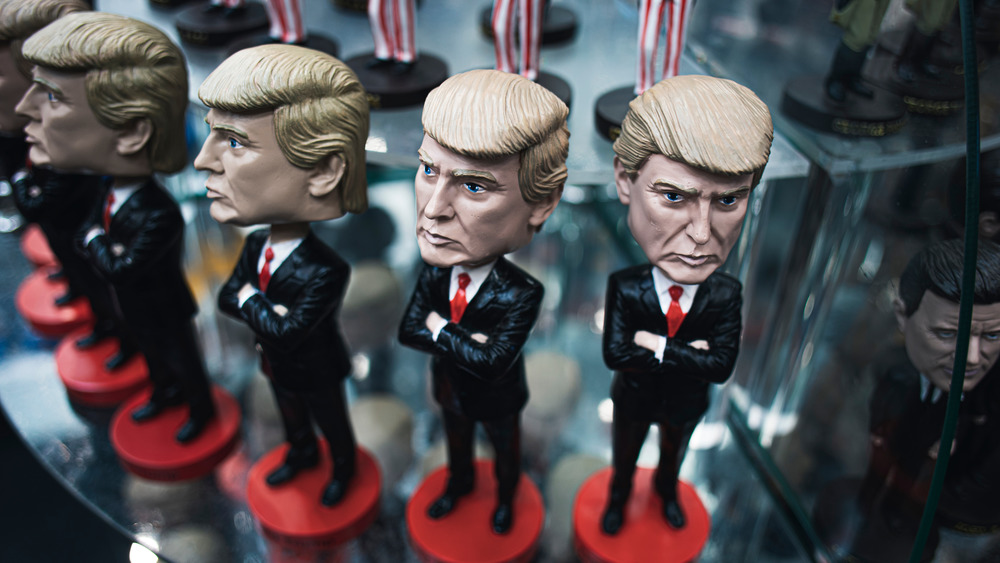Trump Chose Not To Pardon Himself. Here's Why
On his last day in office, President Donald Trump pardoned several people. But he did not, as many pundits believed he might do, pardon himself, per The New York Times. Trump is facing several likely legal challenges, including the possibility of being barred from holding office again, so by pardoning himself, he can potentially skirt these lawsuits.
No one has ever pardoned themselves, so there is no legal or constitutional precedence for it. And this is probably why Trump chose not to pardon himself despite how it could shield him from trials.
Constitutional law scholar David Gray Adler, writing for CNN, said Trump lost the ability to pardon himself the moment Congress impeached him, and a trial is looming. Adler noted that Article 2, Section 1 of the Constitution makes it clear a president cannot pardon anyone in the impeachment process, including himself.
The Washington Post reported the Constitution ensures no one is above the law, not even the president. The reason for this is because the Founding Fathers wanted the new Constitution to prevent one person from becoming an absolute monarch, placing themselves ahead of the law and persecution.
No one is above the law
After they leave office, presidents go back to being a private citizen. All citizens can face legal issues and be imprisoned. When the Constitution was crafted, the Founding Fathers wanted limits to a president's power to pardon.
Adler cited the actions of Charles II of England, who, because as the monarch could not be impeached, attempted to use his pardon power for an associate. The Parliament felt this power had to be checked. Nearly a hundred years later, when the United States Constitution was being written, the framers used this example to make sure presidents don't use the power without limits.
Besides, no person can be a judge for their own case, so even if Trump pardoned himself, he would've passed judgment on his innocence, which the Constitution also disallows.
So, while Trump pardoned several people on his last day in office, he decided not to test the limits of this power by pardoning himself to shield him from potential lawsuits that may come his way.

